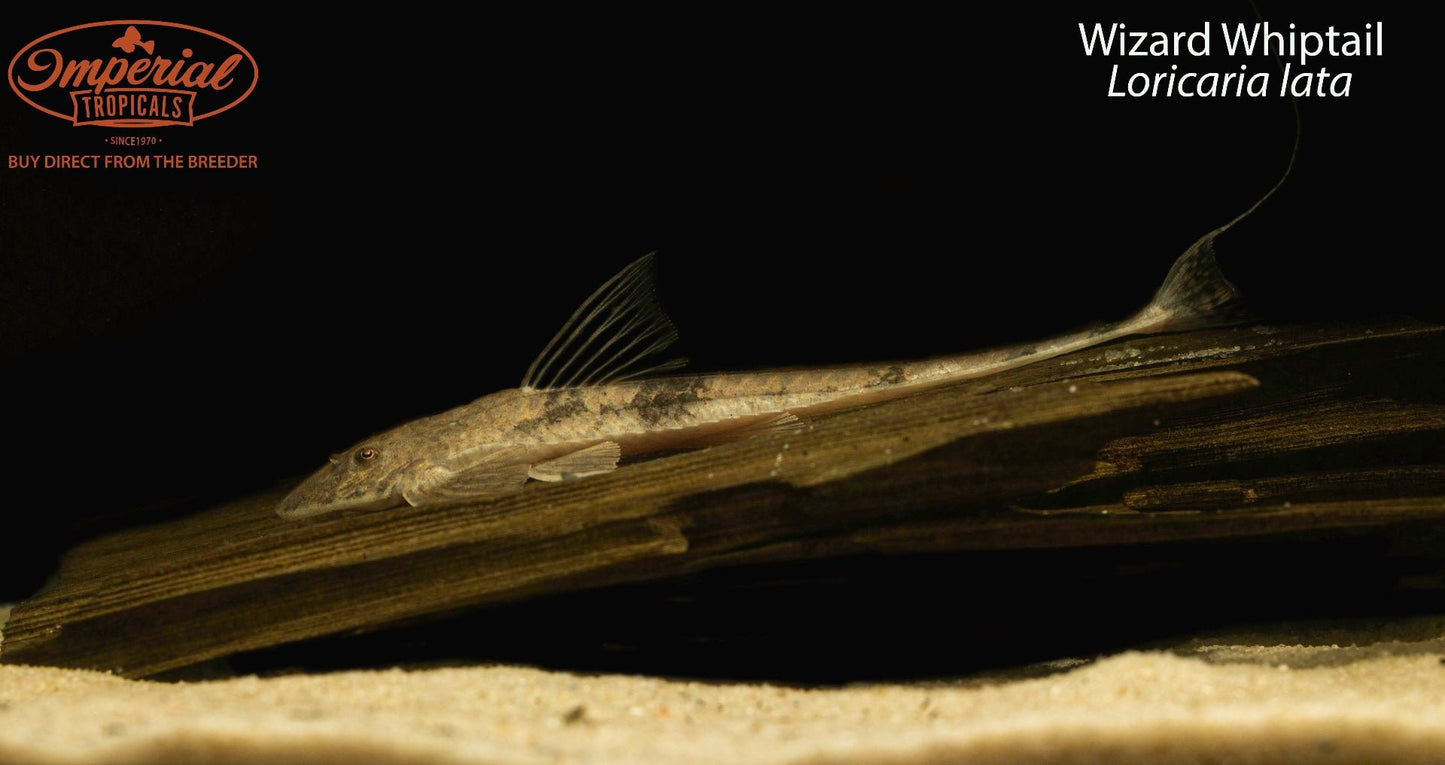Imperial Tropicals
Wizard Whiptail
Wizard Whiptail
Couldn't load pickup availability
Remarks: The wizard whiptail is an uncommon, mouth-brooding species of catfish that bears heavy resemblance to the more common member of the Loricaria genus, the marbled whiptail (Loricaria simillima). Both species sport an impressive “beard” of whiskers around their mouths and change their pattern rather quickly in response to their environment and mood. When on a lighter substrate, they can turn totally white if frightened or trying to blend in. A darker substrate tends to result in darker "mask" and bands along the tail. There are few visual differences between them, but some have noted that the wizard whiptail has a more faded and blotchy mask marking compared the dark and bold mask on the marbled whiptail. The best way to identify the species, however, is not to look to their appearance but rather their collection point. While the marbled whiptail is very widespread and can be found in a few different countries in South America, the wizard whiptail is strictly found in the Rio Tocantins and Rio Araguaia.
Like other whiptails, wizard whiptails have long whiskers that help them during feeding and spawning. Some dominant fish can develop dorsal and caudal fins with long, thin trailers that make for an impressive display. To preserve these sensitive structures, the wizard whiptail should be kept on soft sand and nippy tankmates should be avoided. They are a rather shy and passive species, so extra care should be taken to ensure they get enough to eat. With them being carnivore leaning omnivores, a varied diet of mostly protein rich foods should be provided. Also in line with care for most whiptails, wizard whiptails do best when kept in pristine water whose parameters mimic that of their natural environment. Water that is soft and acidic should be utilized along with heavy filtration and aeration to ensure oxygen levels remain high. Frequent water changes should be performed to ensure nitrate levels remain low and to prevent illness.
Species belonging to the Loricaria genus have a rather fascinating way of caring for their offspring. After mating, the male whiptail gathers up the eggs in his whiskers to hold onto. He will aerate the eggs with his mouth parts, keeping them healthy and safe until the fry hatch and are free swimming when he releases them. In captivity, the fry are very sensitive to change and are prone to starvation so small, frequent water changes should be performed and lots of nutritious food provided. These are not a species that spawn readily in captivity so if one managed to breed these elegant fish it is a true accomplishment.

